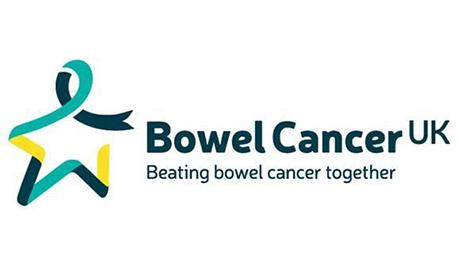Bowel Cancer Risk Factors
Cancer / Digestive HealthWe don’t know what causes most bowel cancers, but we do know that some factors increase your risk of getting the disease. Some of these are things you can’t do anything about, for example, age and genetics. But you can make changes to your lifestyle to lower your risk of getting bowel cancer.
You are more at risk of getting bowel cancer if you have one or more of the following risk factors. This doesn’t mean that you will definitely get bowel cancer. Equally, if you don’t have any risk factors, it doesn’t mean you can’t get bowel cancer.
- Aged over 50
- A strong family history of bowel cancer
- A history of non-cancerous growths (polyps) in your bowel
- Longstanding inflammatory bowel disease such as Crohn’s disease or ulcerative colitis
- Type 2 diabetes
- An unhealthy lifestyle
Family history
If any of your family members have bowel cancer, you might be worried about your risk of getting the disease. However, bowel cancer is common and in most cases it’s not passed down through the family.
Tell your GP if you have:
- A close relative (parent, sibling or child) diagnosed with bowel cancer before the age of 50 years
- Two or more close relatives diagnosed with bowel cancer at any age (for example your parent, and their sibling or parent)
- A relative with a known genetic (inherited) condition linked to bowel cancer, such as Lynch syndrome or familial polyposis
The genetic conditions include Lynch syndrome, FAP (Familial Adenomatous Polyposis) and MAP (MUTYH Associated Polyposis). People with these conditions have a much higher chance of developing bowel cancer and they are more likely to be diagnosed at a younger age. Many of these cancers can be prevented if doctors know about the genetic condition as early as possible.
Around 5-10% of all bowel cancer cases are thought to be caused by a change in a known gene. The changed gene can be passed down through a family. If you have the changed gene, you may have a higher risk of getting bowel cancer at some point in your life. We don't yet know all of the genes that are involved in these cases.
Family history of bowel cancer
The risk of developing bowel cancer may be higher if you have a family history of the disease. A close relative is a parent, sibling or child. Doctors may also call these relatives 'first-degree relatives'.
You have a 'high familial bowel cancer risk' if you have three close relatives who've had bowel cancer in your family. If your family fits into this category, you should have a colonoscopy to test for bowel cancer every five years from the age of 40 until 75.
You have a 'moderate familial bowel cancer risk' if you have a close relative who was diagnosed with bowel cancer under the age of 50 or two close relatives who have had bowel cancer at any age. This means you should have a colonoscopy when you’re 55 and also take part in national screening.
You have an 'average familial bowel cancer risk' if you have no family history of bowel cancer or a low risk family history (for example a parent diagnosed with bowel cancer when older than 50). This means you'll be invited to take part in your nation’s bowel cancer screening. Read more here.
Reducing your risk
Scientists believe around half (54%) of all bowel cancers could be prevented by having a healthier lifestyle. You can reduce your risk by:
Diet
You can reduce your risk of bowel cancer by taking some simple steps to improve your diet.
- Avoid processed meat and limit red meat
- Eat plenty of fibre from wholegrains, pulses, veg and fruit
- Be a healthy body weight
Red and processed meat
There is strong evidence that eating processed meat and a lot of red meat increases your risk of bowel cancer. To reduce your risk, limit how much red meat you eat and avoid processed meats as much as possible.
Red meat includes beef, lamb, pork and goat. If you choose to eat red meat, you do not need to stop but limit the amount you eat to 500g or less (cooked weight) per week. 500g of cooked red meat is about the same as 700g of raw red meat. Eating more than this may increase your risk of bowel cancer.
How much is that?
- One portion of spaghetti bolognese contains about 140g of cooked minced beef
- One cooked medium pork chop is about 90g
- One cooked medium steak is around 145g
Red meat is a good source of protein but you can also get protein from many other foods such as fish, poultry, beans, lentils, tofu and eggs. You could try using chickpeas or beans to replace some or all of the meat in bolognese or chilli recipes. As well as being a great source of protein, they are high in fibre too.
Avoid processed meats such as bacon, ham, sausages and salami as much as possible. Processed meat is preserved by smoking, curing, salting or by adding preservatives. Choose them as an occasional treat rather than every day. Hamburgers and minced meats only count as processed meat if they have been preserved with salt and chemical additives.
Fibre
Fibre is an important part of a bowel healthy diet and is very important in reducing your risk of bowel cancer. Fibre keeps everything moving easily through your digestive system, adds bulk to your waste (poo) and makes it easier to travel through the bowel.
Keep hydrated
We need to drink about 1.6 to 2 litres (6-8 glasses) of fluid every day to stop us getting dehydrated. Water and low fat milk are great choices. Avoid sugary drinks such as cola, lemonade, fruit squash with added sugar and fruit juices (one small glass of fruit juice per day is enough). Fibre and water are a great combination for good bowel health.
Body weight
Being overweight or obese and carrying a lot of weight around your waist can increase your risk of bowel cancer. It is estimated that 11 out of 100 bowel cancers (11%) in the UK are linked to being overweight or obese.
Be a healthy body weight
Measuring your BMI (Body Mass Index) is a simple way of finding out if you’re a healthy weight for your height. Your nurse, GP or dietitian can let you know or you can check your BMI on the NHS website.
Take action if you start to gain weight. As well as being physically active, here are a few tips to reduce your calorie intake if you need to lose weight.
- Be aware of portion sizes, don’t overload your plate and avoid second helpings. If you are still hungry, have some fruit after your meal.
- Be wary of ‘large’ or ‘value-sized’ offers. They often give you more food than you need, leading to weight gain.
- Avoid sugary drinks such as cola, lemonade, fruit squash with added sugar and fruit juices (one small glass of fruit juice per day is enough).
- Alcohol is high in calories so limit the amount you drink.
- Watch out for extra calories from biscuits, cakes, sweets and crisps. Snack on fruit and vegetables instead.
- Set some goals for making changes and enjoy success.
The energy in the food we eat is measured in kilocalories, often shortened to calories. The recommended daily calorie intake is around 2,000 calories each day for women and 2,500 for men.
If you are very overweight and have other health problems, speak to your GP before beginning a weight management and exercise programme.
Physical activity
People who are more physically active, have a lower risk of bowel cancer. Being active can help you maintain a healthy body weight and makes you feel good.
Try to do at least 30 minutes of physical activity such as brisk walking, five times a week. As fitness improves, aim for 60 minutes. If you don’t do much physical activity, try starting with 10 minutes and increase the time gradually. It doesn't have to be about working out in a gym. Enjoy it!
You can be more active by:
- Taking the stairs instead of the lift or escalator
- Walking to the shops
- Doing the housework
- Walking the dog
- Getting off the bus a few stops earlier
Many people spend a lot of time sitting still, either at work or in front of the TV and this can affect your health even if you exercise regularly. Reduce the amount of time you spend sitting at home and at work, and try building more active hobbies into your life such as:
- Dancing
- Swimming
- Hiking
- Cycling
If you have an office job, try not to sit for longer than one hour at a time, stand up while talking on the phone and take a walk at lunchtime if you can. Wearing a pedometer or using a phone app to count the number of steps you take could really motivate you to walk further.
Don't forget, if you miss a few days, don't give up, just start again tomorrow. Physical activity can really help to reduce your risk of bowel cancer. The more active you can be, the better.





































































